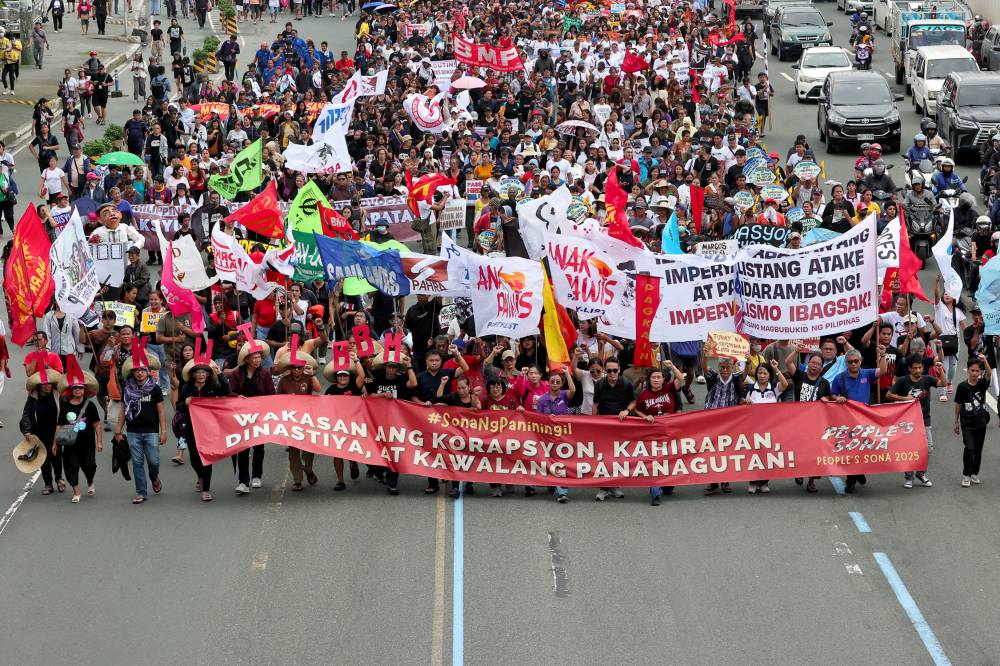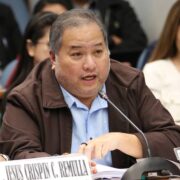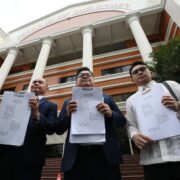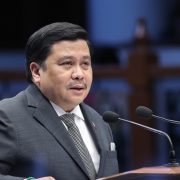Protesters present ‘real Sona’

The administration’s affordable rice program trumpeted by President Marcos in his State of the Nation Address (Sona) on Monday has caused “so much injustice” for farmers, a University of the Philippines scientist said.
Teodoro Mendoza, science director of the Community Legal Help and Policy Center, said that many farmers were forced to sell their palay at P8 to P12 a kilo to comply with the program.
“The price of rice has plummeted today since our good President has boasted that rice is P20. That is the biggest disaster our farmers have ever experienced,” Mendoza told the Inquirer.
In his fourth Sona, the President announced plans to implement the P20 per kilo of rice program across the country by rolling out hundreds of Kadiwa stores and centers in cities and towns.
Ahead of his address at the Batasan Complex in Quezon City, thousands of protesters from different sectors marched on Commonwealth Avenue to report the “real state of the nation.”
Environmental groups assailed Mr. Marcos’ claims about the government’s disaster preparedness, citing the vast swathes of devastation wrought by storms and monsoon rains in the last several days.
Holding an effigy of Mr. Marcos atop a spinning typhoon, Agham secretary general Cleng Julve said the President had done little to address flooding and its root causes.
“[In terms] of flood projects … We don’t feel it,” Julve said. “But you know what the worst disaster is? Marcos Jr. himself.”
In his Sona, Mr. Marcos vowed to go after officials and contractors who profited off flood control projects that malfunctioned at the height of storms and rain.
Workers’ call
Carrying placards and banners, workers slammed the Marcos administration’s economic policies and alleged failure to uplift workers’ lives amid inflation and stagnant wages.
The Federation of Free Workers (FFW), for its part, urged the President to enact a national living wage law, among other demands, lamenting the low daily wage of workers.
“It’s hard to applaud GDP (gross domestic product) growth when you’re drowning in debt, your ATM card is pawned to loan agencies or loan sharks, and your daily wage can’t even afford a Pinggang Pinoy meal,” the group said in a statement.
The group urged the government to adopt a P250 legislated wage hike throughout the country, “so workers can afford at least three healthy meals a day not just to survive but thrive.”
Citing a study by the Ateneo Policy Center, FFW noted that the raw ingredients for a healthy “Pinggang Pinoy” plate would cost about P138.60 per day.
Despite this, the group pointed out that the government’s food poverty threshold last year was at P64 per person daily, meaning one is not “food poor” if they spend more than P64 on food per day.
Santiago Dasmariñas Jr., president of the Confederation for Unity, Recognition and Advancement of Government Employees (Courage), reminded Mr. Marcos about his campaign commitment to end the practice of job orders and contracts of service.
Instead of making good on his promise, the President prioritized the proposed “rightsizing” or “optimization” bill, aimed at streamlining the bureaucracy—a move they warn could lead to mass layoffs in the public sector.
“Our call: job security, not mass layoffs,” said the Courage president during the protest, calling for the junking of the rightsizing bill. —WITH REPORTS FROM GABRYELLE DUMALAG, GILLIAN VILLANUEVA AND RENZ PALALIMPA

















